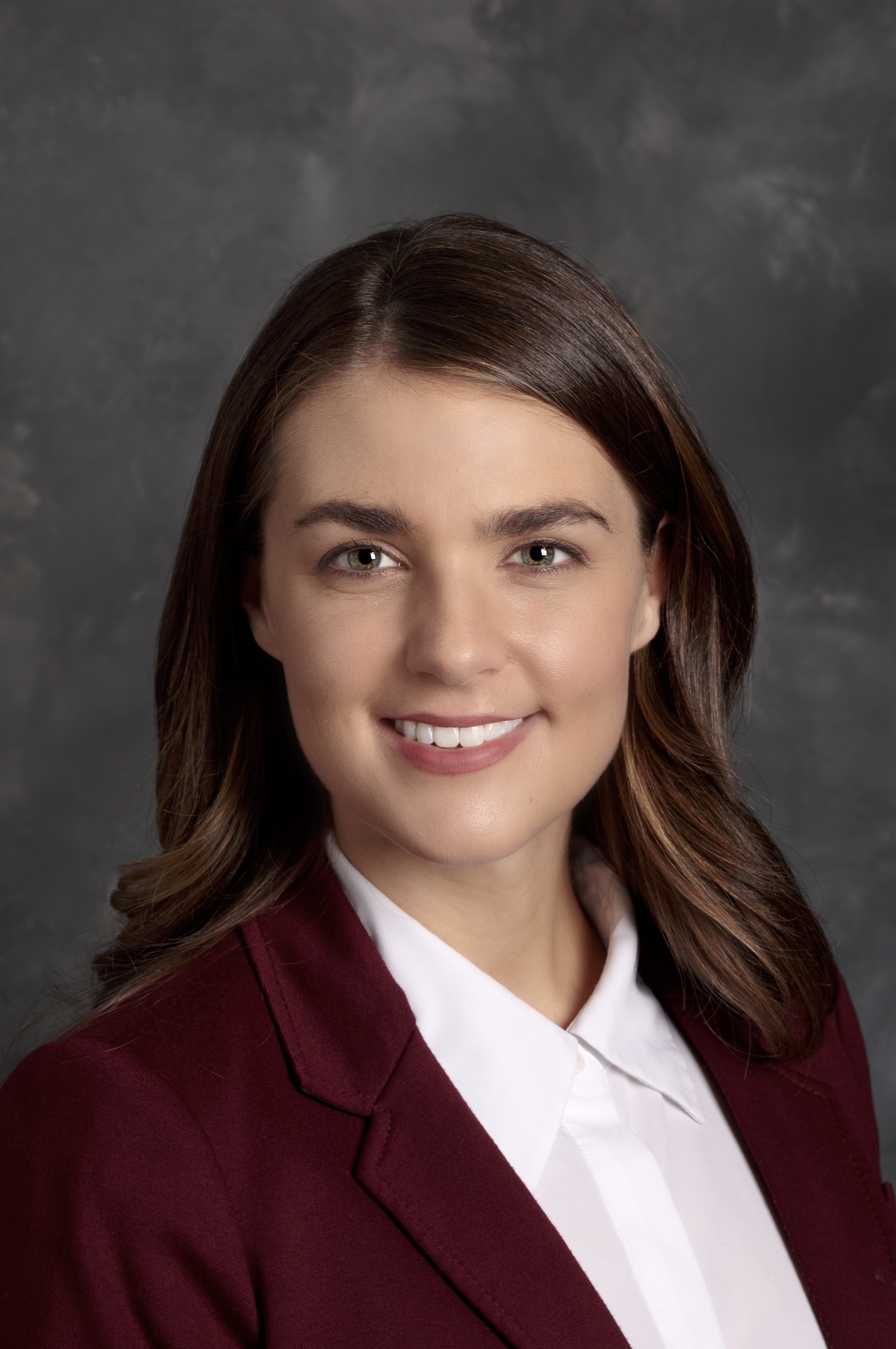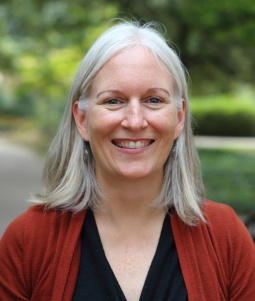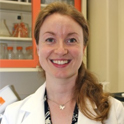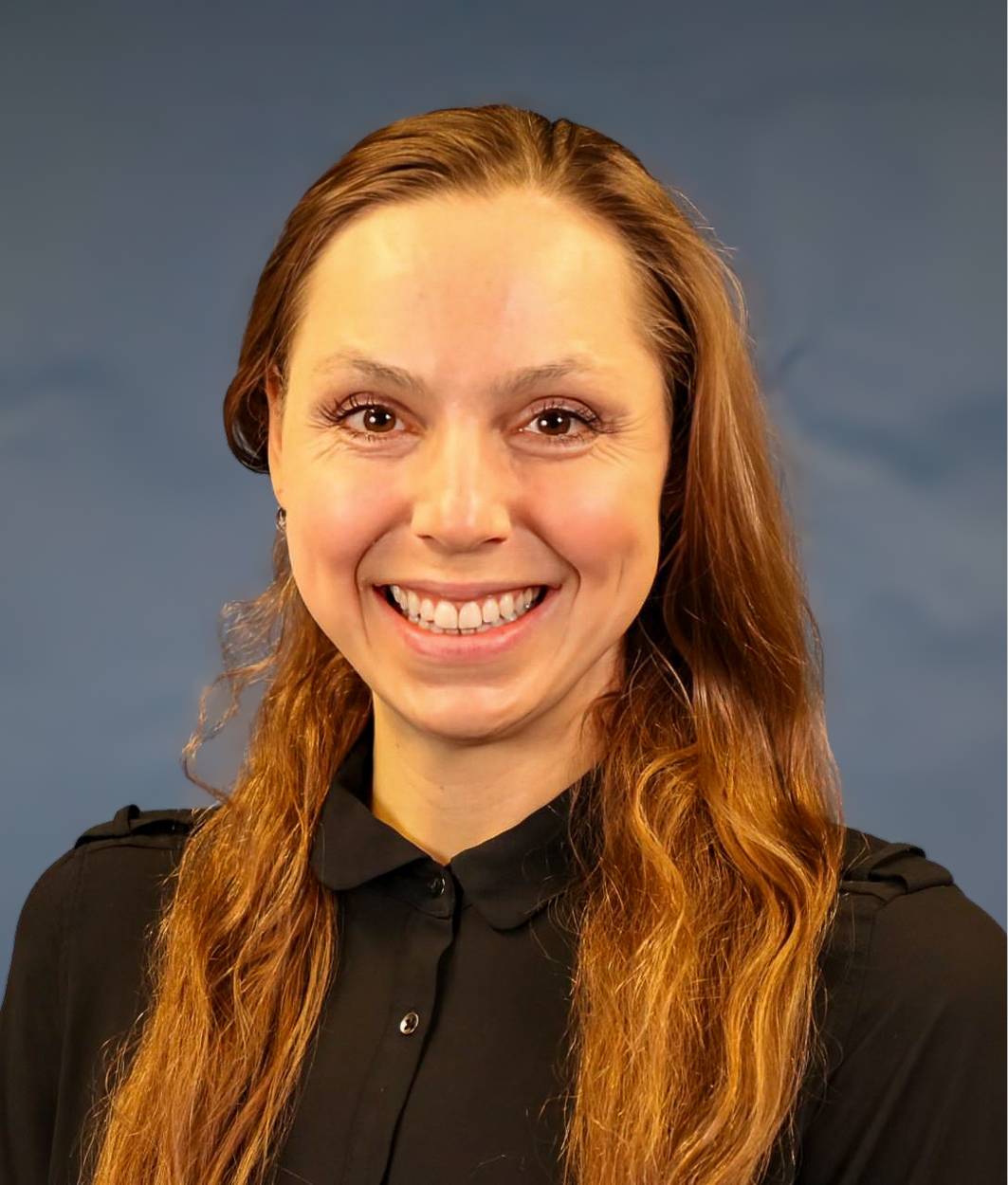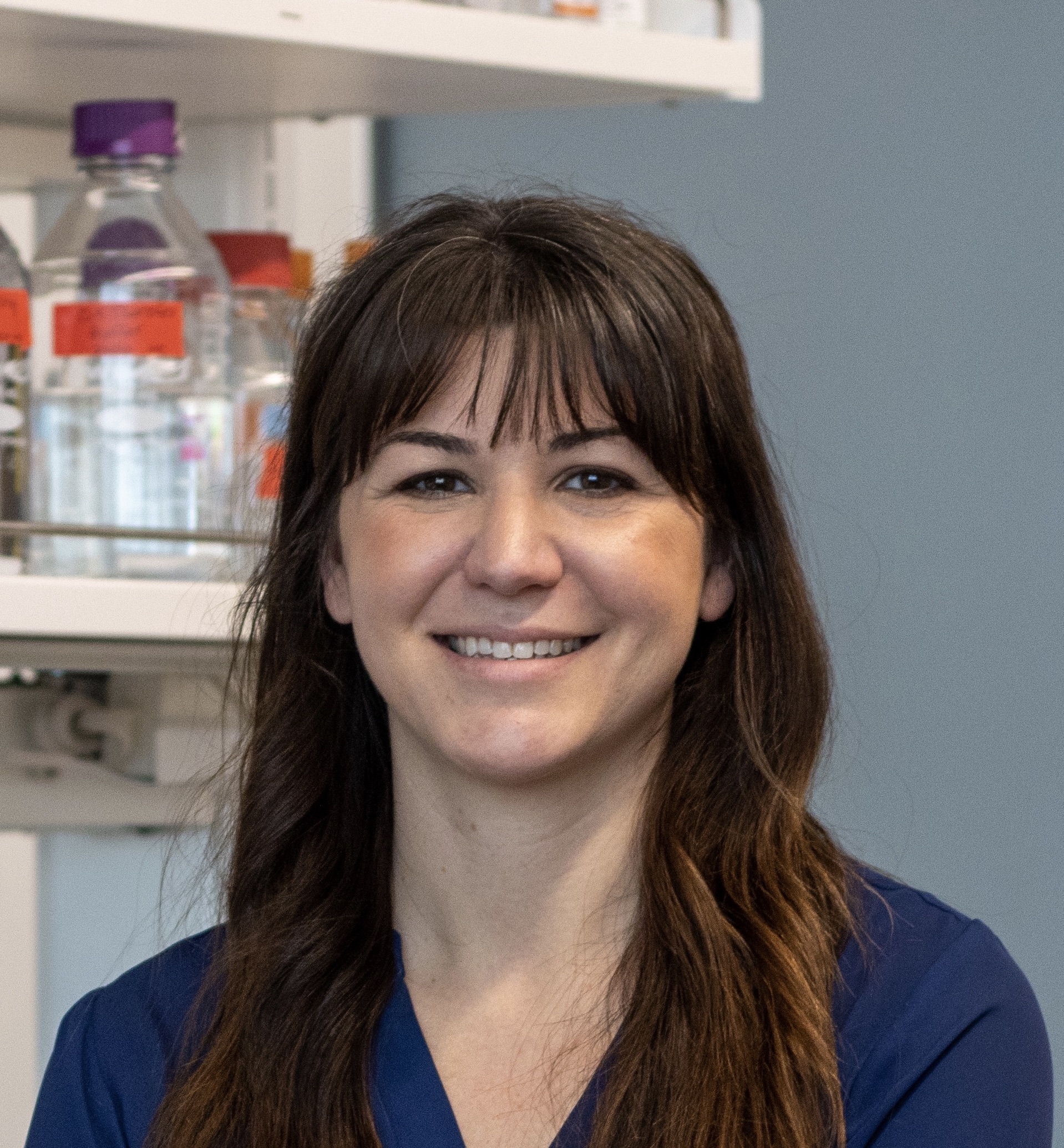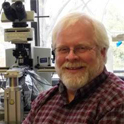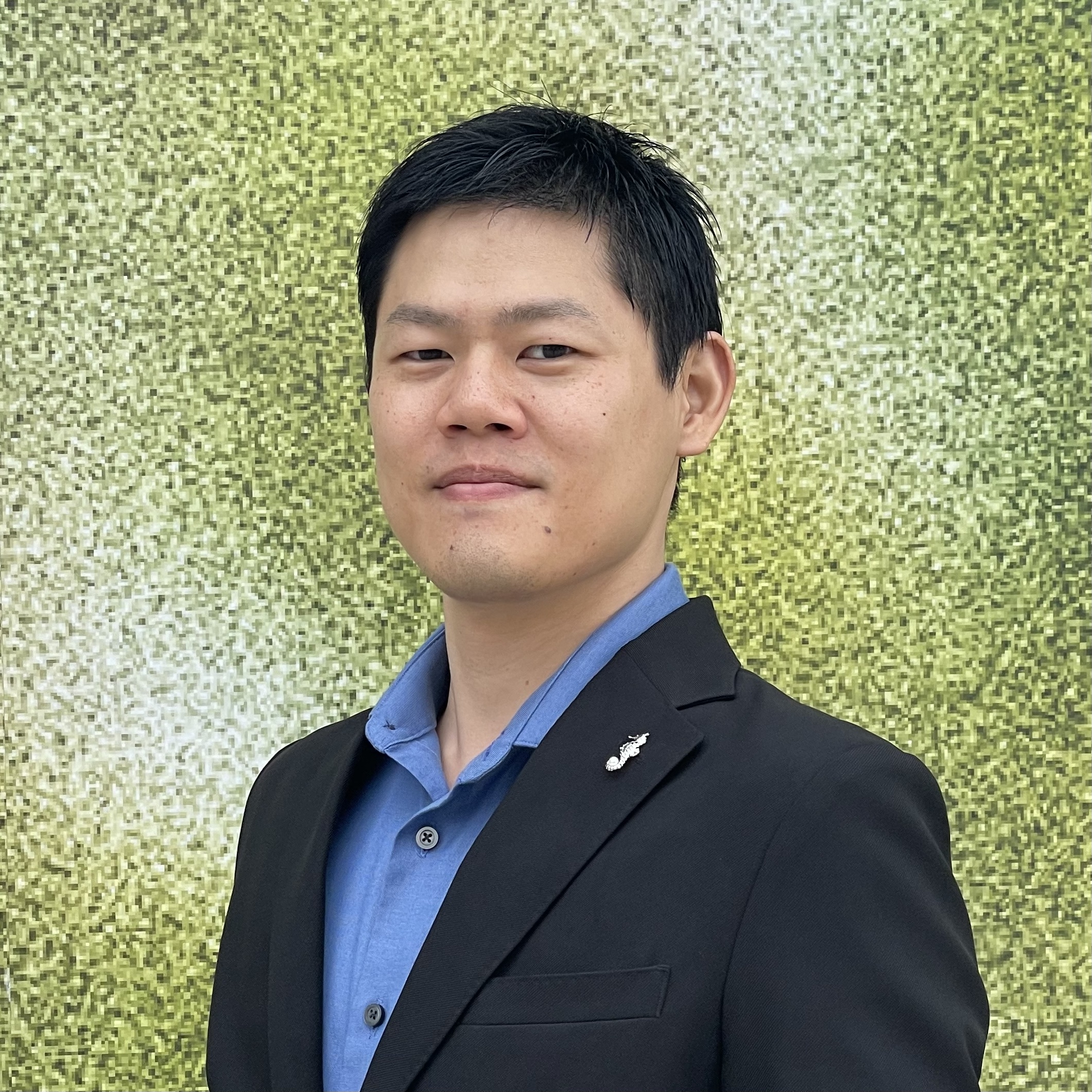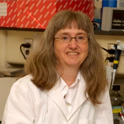| Faculty Member | Department | Focus Area |
|---|---|---|
|
Jessica Bradshaw, Ph.D. |
Psychology |
Associate ProfessorDr. Bradshaw’s research focuses on early identification of autism spectrum disorder (ASD) in the first years of life, including: 1) quantifying the emergence of, and interrelations between, social behavior, visual attention, and motor skills in neonates, infants, and toddlers, 2) identifying aberrant neurodevelopmental pathways that lead to the emergence of autism spectrum disorder (ASD), and 3) translating these basic findings to early detection and intervention strategies for ASD. |
|
Michelle Brown, Ph.D. |
Psychology |
Assistant ProfessorDr. Brown uses a developmental psychopathology framework to: (1) understand how interpersonal relationships influence victimized children’s risk for developing adverse socioemotional outcomes and (2) elucidate biopsychosocial factors that influence treatment outcomes for victimized children. |
|
Alexandria Carrico, Ph.D. |
Music |
Assistant ProfessorDr. Carrico’s research focuses on the intersections of music pedagogy, disability studies, and disability advocacy with a focus on neurodivergence. She primarily utilizes historical, archival, and ethnographic research methods in her scholarship. Her current research examines how understanding and supporting neurodivergent musicality can transform music education and community spaces to be more inclusive for all musicians. |
|
William Consagra, Ph.D. |
Statistics |
Assistant ProfessorDr. Consagra's research centers on computational statistics, functional data analysis, and deep learning, applied to neuroimaging inverse problems and connectomics. |
|
Peter Duffy, Ph.D. |
Theatre and Dance |
ProfessorMore details coming soon about Dr. Duffy's research and work with the Rooster Tails theatre camp for autistic students! |
|
Sarah Edmunds, Ph.D. |
Psychology |
Assistant ProfessorDr. Edmunds studies neurodiversity-informed interventions that address functional impairments associated with autism spectrum disorder (ASD), such as in social communication, flexibility, emotion regulation, and anxiety. She aims to investigate how to best implement, tailor, and increase accessibility for evidence-based interventions for ASD within early intervention, school, and mental healthcare systems. |
|
|
Psychology |
ProfessorDr. Flory's research focuses on understanding outcomes associated with attention-deficit/hyperactivity disorder (ADHD) in children, adolescents, and young adults/college students. Her research examines mechanisms that might explain why individuals with ADHD experience greater substance use and problems associated with use, more social and academic impairment, and more negative health and mental health challenges than those without ADHD. |
|
Daniel Foster, Ph.D. |
Pharmacology, Physiology, & Neuroscience |
Assistant ProfessorDr. Foster’s research is focused on understanding how specific neuronal circuits regulate repetitive behaviors and habitual behaviors in rodents with the goal of identifying novel therapeutic strategies for treating symptoms observed in numerous disorders including autism spectrum disorder and obsessive-compulsive disorder. |
|
Norma Frizzell, Ph.D. |
Pharmacology, Physiology, & Neuroscience |
Associate ProfessorThe Frizzell laboratory is interested in the neurodevelopmental manifestations of mitochondrial diseases, with a focus on the biochemical mechanisms underlying neurologic deficits. They aim to characterize metabolic changes in mitochondrial diseases that exacerbate the existing genetic defects, and they anticipate that this knowledge will inform tailored therapeutic interventions. |
|
Xiaoxue (Jessie) Fu, Ph.D. |
Psychology |
Assistant ProfessorDr. Fu studies the impact of early vulnerability on the development of the neural basis of social cognition and its association with socioemotional adjustment. She uses a variety of measurements, including eye tracking, fNIRS, and fMRI, to assess how children process social information in different contexts. She aims to examine and characterize the neurocognitive and behavioral processes that lead to either adaptive or maladaptive developmental pathways for at-risk children. |
|
Neset Hikmet, Ph.D. |
Computer Science and Engineering |
ProfessorDr. Hikmet is heavily involved in research and health sector related activities. He has led numerous distributed data collection and management projects and led and participated in grant-funded health informatics research in a wide range of contexts. His recent research project Health Services Utilization Dashboard leverages Health Sciences South Carolina’s (HSSC) 2.7 million patient based clinical data set which provides insightful information. |
|
Kimberly Hills, Ph.D. |
Psychology |
Clinical ProfessorDr. Hills provides clinical training in ASD assessment skills to clinicians across the state of South Carolina. Her current research interests focus on autism diagnosis, psychological assessment, prevention and intervention for at-risk youth and positive psychology. |
|
Robert Hock, Ph.D., LMSW |
Social Work |
Associate ProfessorDr. Hock’s research is aimed at promoting healthy parenting and family-centered service delivery for families of children with autism spectrum disorder (ASD) and behavioral health challenges. Dr. Hock is particularly committed to developing and testing family-system interventions to improve caregiver mental health, strengthen parent-child relationships, support co-parenting effectiveness, and increase service access. He has been an investigator on five interventions for parents, and is currently an MPI (with Dr. Mark Feinberg) of an NIH R01 Clinical trial (R01HD099295) titled, “Test of an Innovative, Scalable Support Program for Parents with a Child Recently Diagnosed with Autism Spectrum Disorder.” |
|
Abigail Hogan, Ph.D. |
Communication Sciences & Disorders |
Assistant ProfessorDr. Hogan's research focuses on social communication in neurodevelopmental disorders (e.g., autism spectrum disorder, fragile X syndrome), with an emphasis on factors that contribute to social communication development in young children with neurodevelopmental disorders. Dr. Hogan is especially interested in understanding the relationship between physiological regulation, anxiety symptoms, and social communication difficulties in young children. Dr. Hogan directs the Communication in Autism and Neurodevelopmental Disorders (CANDi) Lab in the Department of Communication Sciences and Disorders. |
|
Fiona Hollis, Ph.D. |
Pharmacology, Physiology, & Neuroscience |
Assistant ProfessorDr. Fiona Hollis is a behavioral neuroscientist who studies the role of brain mitochondrial function in social behavior. Her research uses preclinical rodent models to investigate the mechanisms underlying social behaviors important to neurodevelopmental and neuropsychiatric disorders. |
|
Xianzheng Huang, Ph.D. |
Statistics |
ProfessorDr. Huang’s longstanding research endeavor is studying effects of measurement error on statistical inference and developing nonparametric methods for mean regression, mode regression, and density estimation in the presence or absence of measurement error. |
|
Caitlin Hudac, Ph.D. |
Psychology |
Associate ProfessorDr. Hudac's research focuses on brain development in infants, children, and adults with neurodevelopmental disorders (NDDs) and with a genetic mutation linked to NDDs. She uses multiple techniques (EEG, ERP, eye tracking, fMRI) to target the underlying biology associated with social attention and cognition. |
|
Margaret Janse van Rensburg, Ph.D., MSW, RSW |
Social Work |
Assistant ProfessorDr. Janse van Rensburg joined the College of Social Work as an Assistant Professor in August 2025. Trained as a social worker, she approaches research from a neurodivergent-affirming, neuroinclusive perspective. Her work focuses on Autistic adults’ wellbeing, and she is interested in partnering with community members to identify priorities and support research that reflects their experiences and needs. |
|
Aaron Jasnow, Ph.D. |
Pharmacology, Physiology & Neuroscience |
Associate ProfessorDr. Jasnow's lab aims to gain a better understanding of overlapping neural circuits and molecular mechanisms regulating aversive behavior (fear and stress-responsive behaviors) and appetitive behavior (drug seeking and social behavior). He integrates several interrelated fields that include behavioral neuroendocrinology, social behavior & stress, learning and memory, the neural control of fear, and addiction. |
|
Ashley Kalinski, Ph.D. |
Biology |
Assistant ProfessorDr. Kalinski’s lab is interested in the intersection of immunology and neuroscience. Her lab studies immune mediated mechanisms of neural repair, with an emphasis on peripheral nerve injuries and neuropathies. They are also interested in how immune cells help shape the nervous system microenvironment. |
|
Jessica Klusek, Ph.D. |
Communication Sciences & Disorders |
Associate ProfessorDr. Klusek’s research program focuses on delineating communication, social, and cognitive associated with FMR1 gene dysfunction, such as in fragile X syndrome and carriers of the FMR1 premutation. Research interests include genetic and environmental influences on phenotypic expression across the lifespan; use of cross-syndrome methods to identify areas of phenotypic overall and divergence with autism and the broad autism phenotype; identification of biological correlates of symptom expression, with a focus on autonomic dysfunction and genetic markers. |
|
Qun Lu, Ph.D. |
Chemistry and Biochemsitry |
Professor and SmartState Endowed ChairDr. Lu aims to understand how cellular functions are modulated by signaling molecules under physiological conditions and in complex neurological diseases. With better understanding of underlying molecular mechanisms of disease progression, Dr. Lu develops and investigates next generation neurotherapeutics. |
|
Lindsay McCary, Ph.D. |
Psychology |
Clinical ProfessorDr. McCary’s research and scholarship have been dedicated to improving systems of care for individuals with autism spectrum disorder (ASD) and neurodevelopmental disorders (NDDs). At the core of her work is a commitment to increasing access to high-quality, evidence-based services while simultaneously enhancing the professional capacity of clinicians and service providers. Dr. McCary integrates clinical practice, scholarly inquiry, and interdisciplinary collaboration to address critical gaps in care and improve outcomes for individuals with ASD and NDDs. |
|
David Mott, Ph.D. |
Pharmacology, Physiology, & Neuroscience |
Associate ProfessorDr Mott’s research focuses on circuit mechanisms in the brain that underlie social behaviors and emotional memory relevant to neurodevelopmental disorders, such as Fragile X Syndrome and Autism Spectrum Disorders. |
|
Vignesh Narayanan, Ph.D. |
Computer Science and Engineering |
Assistant ProfessorDr. Narayanan's research focuses on dynamic modeling, network science, and data science. We aim to use systems-theoretic and machine learning tools to uncover dynamic biomarkers for understanding complex neural mechanisms. |
|
Christian O'Reilly, Ph.D. |
Computer Science and Engineering |
Assistant ProfessorDr. O'Reilly's main interests are related to better understanding the brain across spatial and temporal scales in order to address complex neurodevelopmental issues such as autism and other neurodevelopmental disorders. The methods he uses include analytical techniques (e.g., EEG source reconstruction, functional connectivity) and modeling (e.g., point neurons, morphologically-detailed neurons, neural masses), as well as the combination of these two approaches through Bayesian model-driven analyses. He is further interested in novel ways to empower the study of neuroscience through AI and to empower AI through biologically inspired neural networks. |
|
Yuki Ogawa, Ph.D. |
Biology |
Assistant ProfessorThe Ogawa Lab investigates the cellular and molecular mechanisms that shape neuronal structure and connectivity, with a particular focus on the axon initial segment and the formation of axo-axonic synapses implicated in neuropsychiatric disorders. To address these questions, we employ proteomics, AAV-based approaches, CRISPR genome editing, and develop innovative biochemical tools to overcome current experimental limitations in neuroscience. |
|
Orgul Ozturk, Ph.D. |
Economics |
James A. Morris ProfessorMore details about Dr. Ozturk's research coming soon! |
|
Ana Pocivavsek, Ph.D. |
Pharmacology, Physiology, & Neuroscience |
Associate ProfessorMore information coming soon about Dr. Pocivavsek's research! |
|
Alessandra Porcu, Ph.D. |
Drug Discovery & Biomedical Sciences (DDBS) |
Assistant ProfessorMore information about Dr. Porcu's research coming soon! |
|
Fabienne Poulain, Ph.D. |
Biological Sciences |
Associate ProfessorResearch in the Poulain lab aims at understanding how neuronal circuits are formed, maintained and refined during development. They use a unique combination of genetic, biochemical and high resolution live imaging approaches in zebrafish to decipher the cellular and molecular mechanisms of brain wiring directly in vivo. Their discoveries may give new insight on the etiology of neurodevelopmental disorders that originate from miswiring of neuronal circuits during development. |
|
John Richards, Ph.D. |
Psychology |
Carolina Distinguished ProfessorDr. Richards is a developmental cognitive neuroscientist interested in the relation between brain development and attention development. The lab uses structural MRI, DTI, functional MRI to evaluate brain development, and EEG/ERP during face processing to examine the role of the brain in attention to faces. They also study children and adults, and have some collaborative work on FXS and ASD. |
|
Jane Roberts, Ph.D. |
Psychology & Dean for Natural Sciences |
Carolina Distinguished ProfessorDr. Roberts is a Carolina Distinguished Professor and Chair of the Department of Psychology. Her work focuses on understanding the biological mechanisms that underlie cognitive and behavioral functioning in children and adults with neurodevelopmental disorders such as autism, fragile X syndrome, and ADHD. |
|
Deanna Smith, Ph.D. |
Biological Sciences |
ProfessorDr. Smith studies how a microtubule motor (dynein) is regulated by the lissencephaly protein, LIS1. Her lab is particularly interested in how LIS1 controls axonal transport, a process vital to the maintenance of neural circuits and neural health. Currently, they are studying the effect of LIS1 missense mutations, including a mutation found in a child with autism. |
|
Erin Smolak, Ph.D. |
Communication Sciences and Disorders |
Assistant ProfessorMore details about Dr. Smolak's research coming soon! |
|
Jeff Twiss, Ph.D. |
Biological Sciences & Dean for Research and Graduate Studies |
ProfessorDr. Twiss is a professor in the Department of Biological Sciences, SmartState Chair in Childhood Neurotherapeutics, and Associate Dean for Research and Graduate Studies. The Twiss lab uses molecular and cellular biology approaches to understand how neurons develop and function. They are particularly interested in how post-transcriptional regulation impacts neuron growth, focusing on subcellular mRNA translation and RNA dynamics in neurons. |
|
Kristy Welshhans, Ph.D. |
Biological Sciences |
Assistant ProfessorDr. Welshhans’ research focuses on molecular mechanisms in the brain that regulate the formation of nervous system connectivity during development. Using both mouse and human cellular models, her lab aims to identify how changes in these mechanisms may contribute to Down syndrome and the intellectual disability phenotype. |
|
Liz Will, Ph.D., BCBA |
Communication Sciences and Disorders |
Assistant ProfessorDr. Will's research investigates early atypical development and co-occurring autism in genetic conditions associated with intellectual disability, specifically Down syndrome. She is particularly interested in attention and motor phenotypes and aims to understand how they interact across development to shape outcomes related to cognition, communication, and co-occurring conditions including autism and ADHD. |
|
Marlene Wilson, Ph.D. |
Pharmacology, Physiology, & Neuroscience |
ProfessorDr. Wilson is a stress neurobiologist and her research program investigates the neurobiological basis of sex-dependent individual differences in anxiety-like, stress and fear responses in preclinical models. She uses both conditioned and unconditioned models to investigate behavioral, endocrine, autonomic, and anatomical parameters, including rodent ultrasonic vocalizations. |
|
Katie Wolfe, Ph.D. |
Educational Studies - Special Education |
Associate ProfessorDr. Wolfe’s research focuses on communication interventions for individuals with autism, data-based decision making for educators and other practitioners, and the analysis of single-case research data. |
|
Susan Wood, Ph.D. |
Pharmacology, Physiology & Neuroscience |
Associate ProfessorDr. Wood's research focuses on using behavioral models to identify novel neurobiological substrates underlying individual differences in susceptibility to stress-related disorders in males and females. Her lab also studies how stress exposure can lead to comorbidity between psychiatric disorders and cardiovascular disease risk. |
|
Yuexuan Wu, Ph.D. |
Statistics |
Assistant ProfessorDr. Wu's research focuses on developing statistical and machine-learning methodologies to analyze high-dimensional and complex data stemming from neuroimaging, neuroscience, and broader biological and medical research. Dr. Wu is interested in neuroimaging analysis, shape and functional data analysis, computational neuroscience, and causal inference. |
|
Shanghong Xie, Ph.D. |
Statistics |
Assistant ProfessorDr. Xie is interested in research about machine learning, network analysis, precision medicine, functional data analysis, causal inference, and mediation analysis with neuroimaging and genetic biomarkers, to investigate the etiology and progression of diseases, particularly focusing on applications to neurological and psychiatric disorders as well as neurodevelopment in childhood and adolescence. |
|
Zhiqiang (Zack) Sha, Ph.D. |
Psychology |
Assistant ProfessorMy research leverages advanced computational models to identify endophenotypes that characterize brain development and neurodevelopmental disorders, such as autism. My work integrates multi-omics biomedical data, bridging genetic variation, brain MRI, exposure, psychopathological phenotypes, and treatment outcomes. |


